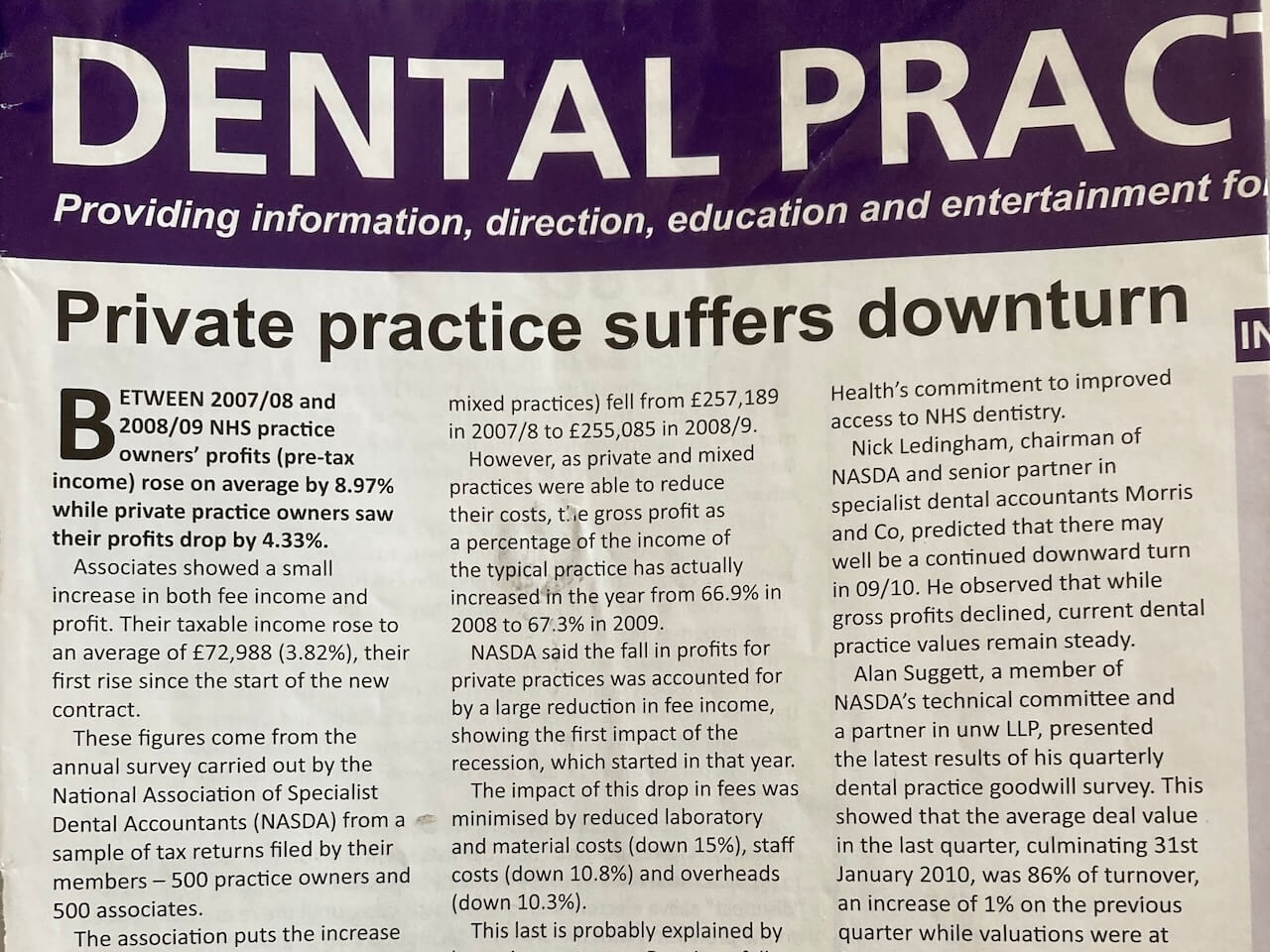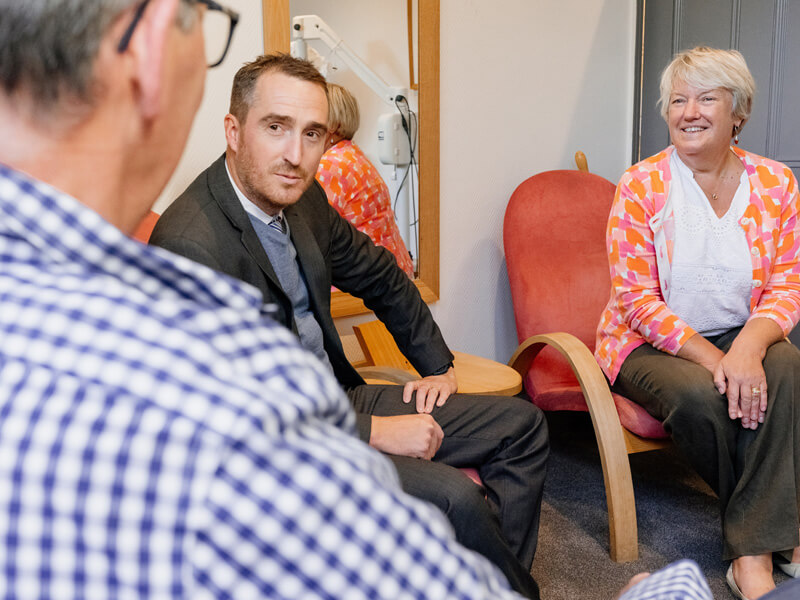It’s hard to believe how good life was for dental practice-owners with significant NHS contracts some 15 years ago. Practices were growing bigger, they were employing more associates to fulfil extended NHS contracts and as a result, profits and practice values were booming. (Even then, however, dentists were being encouraged to reduce their costs rather than expect more money from the Doctors and Dentists Review Body.)
Meanwhile, private practice was suffering a downturn, as the above front cover from the now defunct Dental Practice publication illustrated in 2010. The NASDAL benchmarking statistics for 2008-2009 showed that practice-owners with NHS contracts increased their profits by nearly 9% over the previous year, while private practice profits dropped on average by 4%. The global financial crisis didn’t help.
The pendulum has swung and today it’s the owners of private dental practices who are enjoying reliably stable profits. Valuations are high too, with positive numbers of plan patients helping boost values. Incrementally, practices in England have either reduced their NHS contracts or fully converted. In some cases, the owner converted to private practice first and associates followed suit when they witnessed the benefits. The transition to private care was mostly driven by a desire to improve quality of life and to take control of their working lives, rather than earning more money.
In our opinion, COVID helped boost the transition. Between 2020 and 2022, private practices were able to showcase high standards of care. With our support, we saw many of our clients increase patient numbers and profits. When patients fully appreciate what they are paying for, they seldom go back.
What will happen if the new Labour Government decides to put substantially more money into NHS dentistry? Dental practices which converted to private practice by giving up their contract but without improving their customer service will be vulnerable. They could lose patients if a practice in the area is awarded funding to tackle the NHS access crisis. If service standards are lacking, some patients may choose to spend their money in better private practices in the area.
But we don’t see this happening. It’s 25 years since Tony Blair made his commitment to provide NHS dentistry for all but only a few years later he admitted he was powerless to achieve this. Dentists have to want to work in the NHS and over the last quarter century, many have demonstrated they prefer to control their own destiny. Today’s Labour Party priority, as promised, is surely to improve children’s oral health? We believe the ‘skill mix’ dream should finally deliver and dental therapists will provide much of the NHS care for the same or less money.
A similar process has already occurred in some parts of the country with orthodontic practices. Those orthodontists who successfully tendered to retain their NHS contract to treat children found they were having to do more work for the same amount of money. To sustain profitability, they had to move to a therapist-led model instead of simply using associate orthodontists.
Those orthodontic practices which failed to retain their contract in the last round of commissioning have had to build their private income to match the funds they received for NHS treatment of children. Not only did they lose the guaranteed NHS work and income, but they must also compete with High Street practices providing teeth-straightening. They have to keep attracting new patients wanting orthodontics since the referrals from GDPs they traditionally counted on are much reduced.
In summary:












